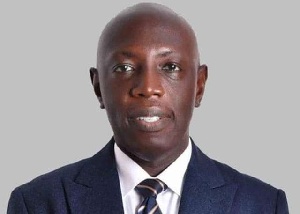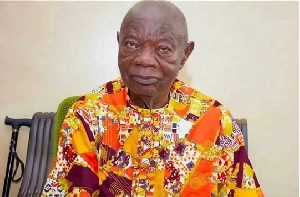- Home - News
- Elections 2024
- News Archive
- Crime & Punishment
- Politics
- Regional
- Editorial
- Health
- Ghanaians Abroad
- Tabloid
- Africa
- Religion
- Photo Archives
- Press Release
General News of Wednesday, 23 April 2025
Source: www.ghanawebbers.com
Articles 296 and 146 at a Crossroads: Strengthening the Chief Justice’s Security of Tenure
In Ghana, Article 296(c) is often debated and misunderstood. This article governs discretionary power. Recently, Article 146(10) gained attention after President John Mahama suspended Chief Justice Gertrude Sackey Torkornoo. This suspension allows investigations into petitions for her removal.
Some people questioned if the President needed a Constitutional Instrument (CI) before acting. The answer is no; he was not required to issue one. Article 146(10) clearly outlines when and how a judge can be suspended. It specifies that the President must act on advice from the Council of State or Judicial Council.
Article 296(c) requires public authorities to publish regulations for discretionary power. This aims to ensure transparency and prevent arbitrary decisions. However, the Supreme Court clarified that this article does not apply to all forms of discretion. Applying it too broadly could disrupt public administration.
President Mahama followed constitutional procedures in suspending Chief Justice Torkornoo. He acted on advice from the Council of State and after a petition was referred to a committee. Importantly, he did not need to issue a CI.
Confusing two types of discretionary power leads to misunderstandings. One type needs procedural rules; the other is already constrained by the Constitution. Article 146(10) falls into the second category.
The Ghanaian Constitution values functional fidelity over unnecessary formality. It emphasizes fairness, accountability, and rule of law through checks and balances in suspension processes. Insisting on a CI under Article 296(c) would be legally incorrect and redundant.
Despite this clarity, there are reasons to revisit Article 146. The goal is not to limit presidential power but to strengthen protections for the Chief Justice's office. Currently, Parliament has no role in removing the Chief Justice despite being involved in appointments.
This imbalance raises concerns about political influence over judicial independence. In democracies like the U.S., India, and South Africa, there are safeguards against politically motivated removals of judges.
To improve Ghana’s process for removing a Chief Justice, several reforms could be considered:
1. Legislative Ratification: Require Parliament's approval by a two-thirds majority for removal recommendations.
2. Enhanced Threshold for Petitions: Mandate signatures from multiple MPs or legal professionals on petitions against the Chief Justice.
3. Public Transparency: Make investigative committee proceedings public while protecting sensitive information.
4. Fixed Timeframes and Appeal Mechanisms: Establish clear timelines for processes with final reviews by the Supreme Court (excluding implicated judges).
The President's compliance with Article 146(10) during Torkornoo's suspension should not be questioned but should prompt constitutional reform discussions instead. Strengthening safeguards will protect judicial independence while maintaining accountability within leadership roles.
By Fred Tettey Djabanor
Head of Current Affairs Production
Citi FM & Channel One TV










